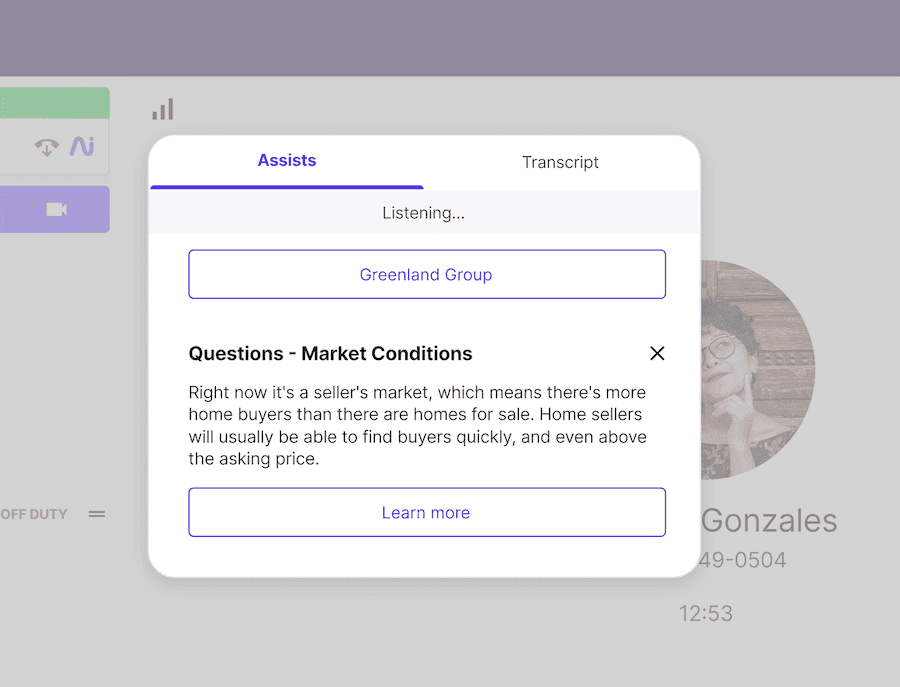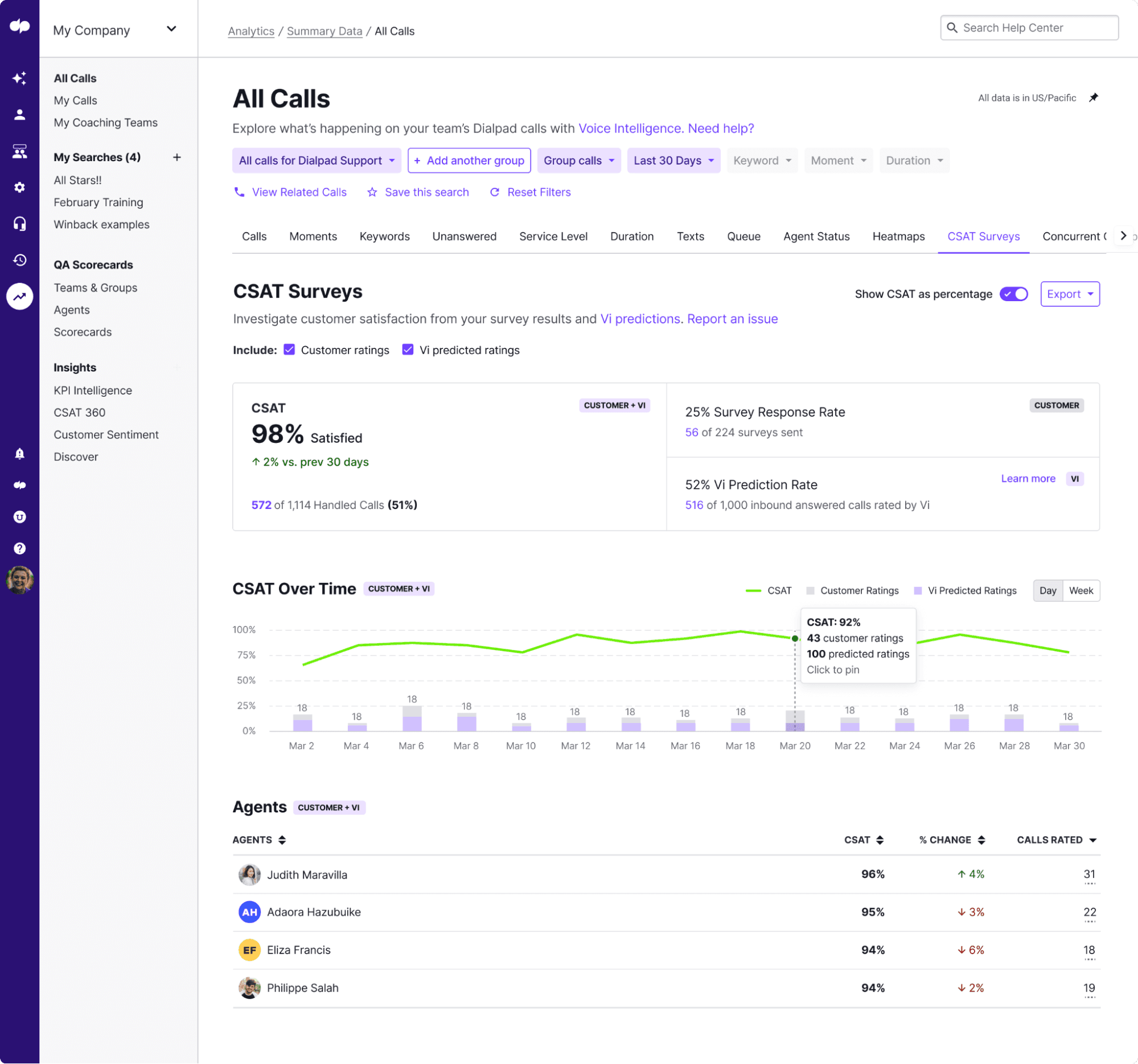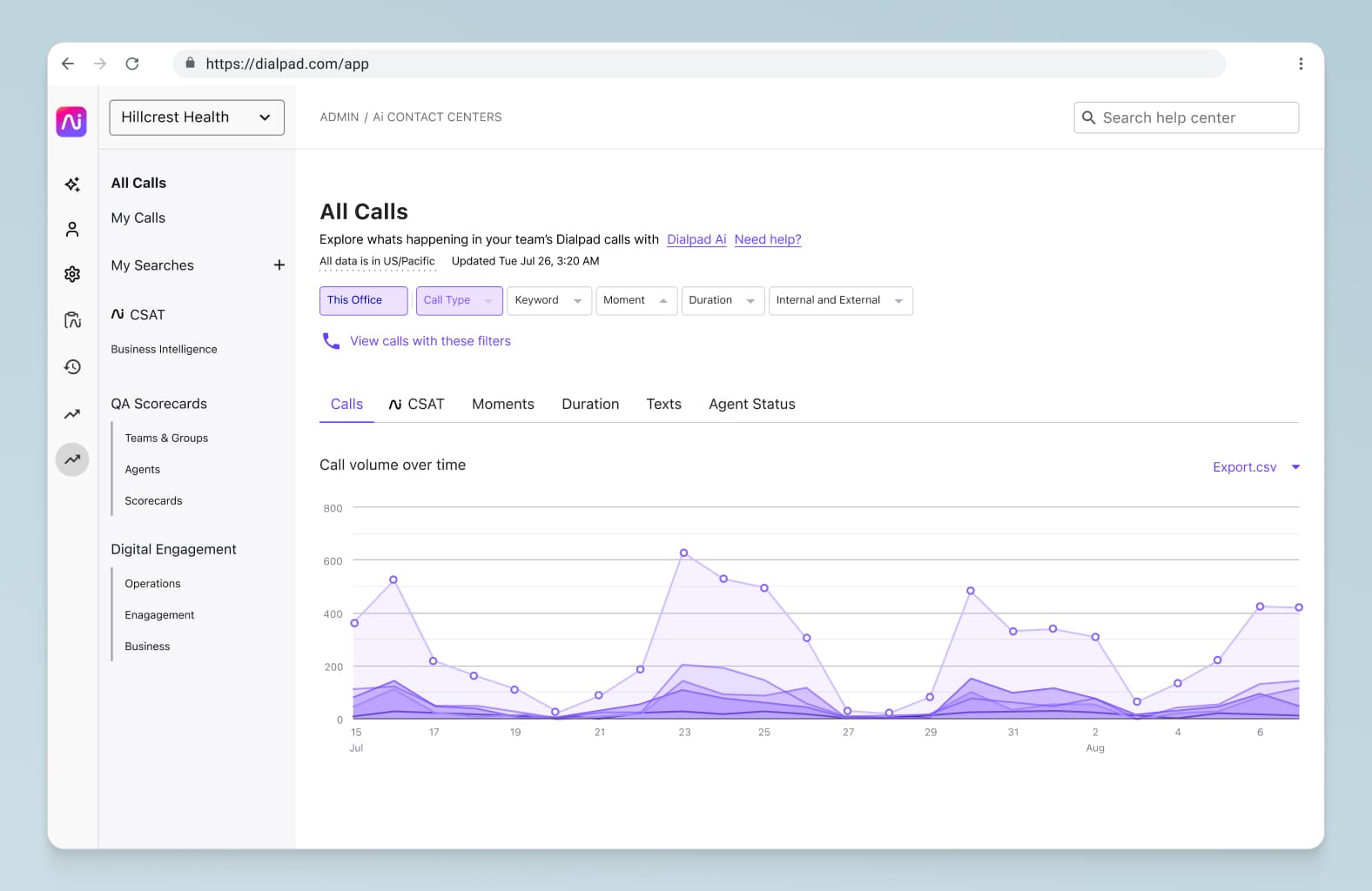How to empower contact center agents (with tips from Reddit)

Content Writer

Tags
Share
It can be hard to work at a contact center. They’re stressful, often feel thankless, and can put agents in the crosshairs of angry customers. So it’s no wonder why they have one of the highest turnover rates out of any job. In fact, in 2022, the average contact center turnover rate was around 45%, which means that employees are unhappy, contact centers have to spend more time and money training new agents, and existing agents are put under even more stress as they need to cover the workload from the ones who left.
With that in mind, we have to ask: what are some of the biggest reasons contact center agents leave, and what can we do to make their jobs (and lives) easier?
To answer this question, we looked around and saw what current and former contact center agents had to say, including some enlightening answers from agents on Reddit.
What demoralizes agents?
The first question is: what is it that makes contact center agents leave their job? That’s easy enough to figure out once you know the worst parts about working in a contact center, and agents on Reddit threads are happy to share their experiences with the worst parts of working in contact centers (and why).
“I used to work for a major cell phone call center, and the most demoralizing thing was being graded on my calls at average or below average, all the time, despite trying my absolute hardest, the customers liking me, and always doing well in previous call centers,” explains user thesmellnextdoor. “The second worst part was getting in trouble for asking a question. I'd constantly get **** for putting the customer on hold to find out if I had the right information or to ask a supervisor for a credit.”
In another thread, user exoticempress shared similar sentiments. “I’ve worked in both good and bad call centers. The bad call centers were the ones that micromanaged agents to the nth degree, had insane metrics, treated agents like kids, had draconian policies (especially with attendance) and did not allow agents to warn and terminate calls with abusive customers.”
When agents don’t have support from their managers, things can get even worse. Escalating a call doesn’t necessarily mean the agent will be able to get away from angry and abusive customers, as mentioned by the Reddit user OfficiallyRelevant in this thread (warning: lots of expletives, but for valid reasons). “They make you stay on the line, give you wrong information, make you listen to constant insults, and even then will make sure they don't have to do their job.”
It’s easy to understand how agents get demoralized, given the combination of negative feedback, lack of support, micromanaging, and customer abuse. So now it’s time to look at the flip side: what is it that can encourage agents to stay?
What agents want
Rather than speculate about what could help contact centers, the best thing we can do is ask the agents themselves. Fortunately, the Reddit threads have plenty of examples of what agents like and what they wish they could do.
User lostmonkey70 explains the biggest differences between good and bad contact center environments. “Good ones empower you to actually complete the job you've been hired to do, communication from leadership is clear, and the focus is on actually helping the customers. In a *****y call center, the focus is on the numbers, you follow a flow whether or not you can actually resolve the issue, you have little autonomy, and things change constantly with little notice or without enough information about the changes.”
The concept of empowering agents is a consistent one throughout the threads, with the user TyrionsRedCoat adding: “Don't force people to read from scripts. Let them be individuals who are empowered to speak in their own words. This will make customers feel like they are being treated like people. (Ditto the employees.)”
On another thread, movafett echoes the sentiment about empowerment and avoiding scripts. “I've worked mostly in tech support, but from the customer service angle, being empowered to make some decisions on your own and having leeway in what you're allowed to do to help out makes a big difference. Scripts are the devil. I'd never work anywhere with a strict script unless it was the last choice before welfare.”
User DMVman also has a lengthy list of suggestions for contact centers that want to retain agents, including:
Proper training
The contact center tools they need to properly help callers
Downtime between calls (and not just a 15 minute break every few hours)
Managers that care about the agents and want to help
Advancement opportunities
A workplace that makes them feel respected and valued
And honestly, isn’t that the very least we should expect from any workplace?
Keyword: Empowerment
In each of these cases, we can see one important term pop up: “empower.”
Agents need to be empowered to help customers without needing to jump through hoops, raise their hands, or act as a go-between for the manager and customer. Not only does this allow them to provide faster and better service to the callers, it also makes them feel better about their work. It’s more efficient and creates a better sense of job satisfaction, especially when they’re not restrained by scripts or have to jump through hoops.
With that in mind, how can contact centers provide agents with that sense of empowerment they need?
Dialpad’s agent empowerment tools
It just so happens that Dialpad’s cloud contact center platform offers several tools designed to empower contact center agents and address their concerns.
For instance, you can set up Real-Time Assist (RTA) cards and Ai Agent Assist to help agents answer questions quickly and more effectively. While they can be used to deliver scripted answers, they can just as easily include notes and guidance that agents can refer to without needing to read them verbatim:

You can add RTA cards in advance, and they’ll react to any keywords Dialpad Ai detects, immediately pulling up information or guidance connected to the phrase. This gives agents the info they need as soon as a question is asked.
Then Ai Agent Assist takes this concept a step further: instead of using preset cards, it uses artificial intelligence to scrape the information from your company’s website, help center, other knowledge sources, and even previous conversations to gather the information—even if no one manually gathered any of this information in advance:

These provide agents with the training, information, and tools they need to help customers and reduce the need to escalate calls or contact supervisors. At the same time, they help agents focus on the conversation, relying on scripted answers only when absolutely necessary.
How about those low customer satisfaction scores? Dialpad can help with that as well, with Ai CSAT. If an agent is doing a good job but still getting low scores, it could just be that the only customers answering surveys are the few disappointed ones (in fact, only about 3% of customers actually fill out satisfaction surveys). Ai CSAT provides a holistic view of customer satisfaction by using AI to determine CSAT scores for every call—not just the ones where customers answer surveys:

Poor customer satisfaction scores are often caused by limited tools, lack of information, and poor training. With Dialpad’s contact center analytics (along with Ai CSAT), supervisors can identify which agents aren’t hitting their satisfaction scores and find ways to help and support them with actionable insights:

Want to empower your contact center agents?
Contact centers are harsh environments, but that means we should all strive to make them better. Agent empowerment can help with that by giving agents the information and tools they need to help customers (far better than a script ever could) and identifying areas where they could use some help.
The only things Dialpad can’t change are your company’s environment, leadership, and customers. Those are in your hands, but remember: happy contact center agents are more likely to stay, which in turn ensures they gain experience and stay motivated, while saving money on training and onboarding new agents.
Want to see how Dialpad Ai Contact Center empowers agents?
Get a personalized walkthrough of how Dialpad can help provide an excellent experience for agents and customers alike. Or, take a self-guided interactive tour of the app!








